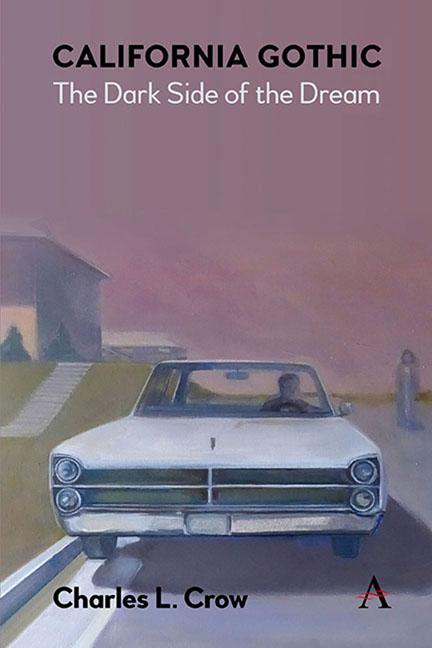Book contents
- Frontmatter
- Dedication
- Contents
- List of Figures
- Preface
- Acknowledgements
- 1 The Magic Island
- 2 Ambrose Bierce and San Francisco’s Gothic Frontier
- 3 Lost Coasts
- 4 Disease, Pandemics, and the Monstrous
- 5 The Shadow Line: Noir and California Gothic
- 6 California Ecogothic: What’s Buried in the Basement
- Works Cited
- Afterword
- Index
6 - California Ecogothic: What’s Buried in the Basement
Published online by Cambridge University Press: 27 March 2024
- Frontmatter
- Dedication
- Contents
- List of Figures
- Preface
- Acknowledgements
- 1 The Magic Island
- 2 Ambrose Bierce and San Francisco’s Gothic Frontier
- 3 Lost Coasts
- 4 Disease, Pandemics, and the Monstrous
- 5 The Shadow Line: Noir and California Gothic
- 6 California Ecogothic: What’s Buried in the Basement
- Works Cited
- Afterword
- Index
Summary
All of history is a rehearsal for its own extinction.
—Cormac McCarthy, The PassengerEcogothic is based on the knowledge that human activity has changed the planet’s climate and biosphere and that the extinction of human and much animal life is likely, if not inevitable. Ecogothic thus looks backward and forward: forward to an apocalypse, backward to what we have done—and the knowledge that we have repressed or ignored.
The ecological disaster, the accelerating Sixth Extinction, is a global concern and not particular to California’s magic island. But novels and films about global collapse slot easily into the rich tradition of the California apocalypse, and especially the destruction of Los Angeles, or what Mike Davis has called (in the title of his 1998 book) the “ecology of fear.” Los Angeles has been destroyed more than any other city, even more than Tokyo, by earthquake, alien invasion, zombies, plague, and every other imaginable means. But increasingly, the agency of destruction does not have to be imagined but merely observed. As we contemplate the end of our familiar world, we also re-evaluate our received notions of natural history, as embodied in institutions like museums and zoos, and we reconsider California’s long tradition of nature writing and celebration of its unique landscape.
This chapter will examine two novels of the near future that imagine the disaster that awaits: Octavia Butler’s Parable of the Sower (1993) and Claire Vaye Watkins’ Gold Fame Citrus (2015). In contrast, Lydia Millet’s Ecogothic trilogy, How the Dead Dream (2008), Ghost Lights (2011), and Magnificence (2012), is set in the present and is a meditation on how humanity’s destructive relationship with the animal world has brought us to this point.
The prescient Octavia Butler (1947–2006) understood before most novelists that climate change would crash infrastructure and civil order and send populations fleeing as refugees. Los Angeles, always fragile, perched on an edge between a desert interior and undrinkable salt water, dependent on stretched arteries bringing water from distant sources, would be an early victim of a hotter and dryer world. The teen-age protagonist of Parable of the Sower, Lauren Olamina, remembers a rain shower in which the delighted child played—a wonder seldom repeated. Now, in a time of endless drought and social collapse, ordinary people live in barricaded communities and venture out into the chaos in armed groups.
- Type
- Chapter
- Information
- California GothicThe Dark Side of the Dream, pp. 57 - 66Publisher: Anthem PressPrint publication year: 2024



